
Keith Jarrett is an American pianist and composer. Jarrett started his career with Art Blakey and later moved on to play with Charles Lloyd and Miles Davis. Since the early 1970s, he has also been a group leader and solo performer in jazz, jazz fusion, and classical music. His improvisations draw from the traditions of jazz and other genres, including Western classical music, gospel, blues, and ethnic folk music.

Eyes of The Heart is a live album by American pianist Keith Jarrett recorded at the Theater am Kornmarkt in Bregenz, Austria in May 1976 and released on ECM in 1979—the last release by Jarrett's "American Quartet", featuring saxophonist Dewey Redman and rhythm section Charlie Haden and Paul Motian.
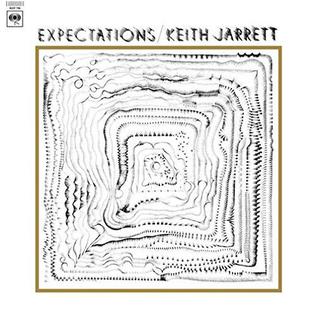
Expectations is an album recorded by Keith Jarrett in 1972 and released on Columbia Records the same year. In addition to Jarrett, musicians on the recording include his "American quartet": Dewey Redman on tenor saxophone, Charlie Haden on bass, and Paul Motian on drums. Also featured are Sam Brown on electric guitar, Airto on percussion, as well as brass and string sections whose members are not credited in the album information. Expectations was produced by George Avakian, Jarrett's manager since 1966.

Standards, Vol. 1 is an album by American jazz pianist Keith Jarrett recorded over two days in January 1983 and released on ECM on cassette and LP later that year—a session which also produced Changes (1984) and Standards, Vol. 2 (1985). The trio features rhythm section Gary Peacock and Jack DeJohnette, the first release by the long-standing "Standards Trio".

Standards Live is an album recorded by Keith Jarrett's Standards Trio live in concert in Paris, in July 1985. It was published by ECM Records in 1986 and it became the first in a long series of live albums to be released by Keith Jarrett, Gary Peacock and Jack DeJohnette as a unit.

Sun Bear Concerts is a live box set by American jazz pianist Keith Jarrett compiling five solo piano concerts performed over two weeks during his November 1976 tour in Japan and originally released by ECM as a ten-LP set in January 1978 and re-released in 1989 as a six-CD box set restoring encores from three of the concerts.

Ruta and Daitya is jazz album by pianist Keith Jarrett and drummer Jack DeJohnette recorded in May 1971 and released on ECM in 1973—one of Jarrett's rare performances on electric keyboard.
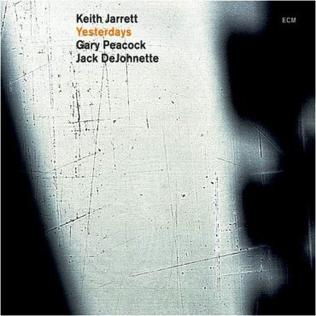
Yesterdays is a live jazz album by Keith Jarrett, Gary Peacock, and Jack DeJohnette recorded in concert on April 30, 2001 at the Metropolitan Festival Hall in Tokyo and also at the sound-check recording of April 24, 2001 at the Orchard Hall in Tokyo that would give way to Always Let Me Go. It was released by ECM Records in 2009.

The Out-of-Towners is a live album by the jazz trio of Keith Jarrett, Gary Peacock, and Jack DeJohnette, recorded at the Bavarian State Opera in Munich on July 28, 2001 and released on ECM in August 2004.
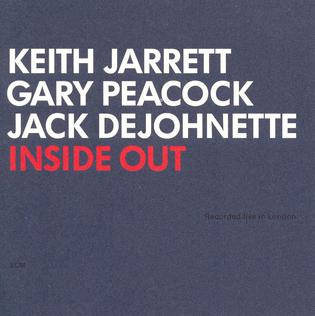
Inside Out is a live album by Keith Jarrett's "Standards Trio," featuring Gary Peacock and Jack DeJohnette, recorded at the Royal Festival Hall in London on July 26 & 28, 2000 and released on ECM October the following year. Along with Changes (1983) and Changeless (1987), this was the trio's third album to feature mainly original improvised material.

Over the years, Keith Jarrett has recorded in many different settings: jazz piano trio, classical and baroque music, improvised contemporary music, solo piano, etc. Well known for his tremendous impact on the piano and jazz scene, as a composer, multi-instrumentalist, and first class improviser, Keith Jarrett's original output embraces many different musical styles and spans a period of almost 50 years, comprising a generous production of more than 100 albums.

Luminessence is an album composed by American pianist Keith Jarrett featuring saxophonist Jan Garbarek and the Südfunk-Sinfonieorchester conducted by Mladen Gutesha recorded in April 1974. It was released on the ECM label in 1975. Jarrett does not perform on this album. Gutesha had conducted the Stuttgart strings on "Metamorphosis," from Jarrett's 1974 album In the Light, and would appear as conductor on Arbour Zena (1976).
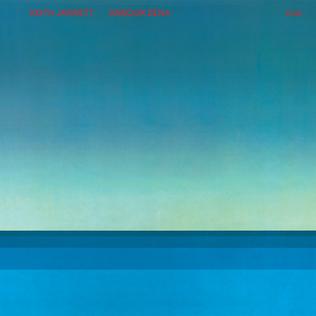
Arbour Zena is an orchestral work composed by American jazz pianist Keith Jarrett featuring saxophonist Jan Garbarek, bassist Charlie Haden and members of the Stuttgart Radio Symphony Orchestra conducted by Mladen Gutesha which was recorded in October 1975 and released by ECM in 1976.
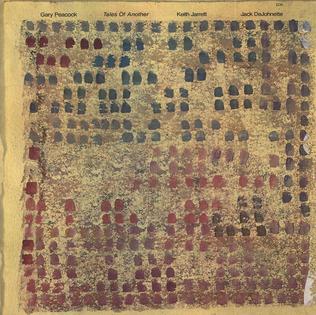
Tales of Another is an album by American bassist Gary Peacock featuring Keith Jarrett and Jack DeJohnette recorded in 1977 and released on the ECM label.

Hymns/Spheres is a solo double album by Keith Jarrett recorded at the Benedictine Abbey in Ottobeuren, West Germany, September 1976 and released on ECM two months later in November. The album consists of improvisations on the massive Karl Joseph Riepp "Trinity" Baroque pipe organ, "the larger of the two Karl Joseph Riepp (1710–1775) organs at the Benedictine Abbey in Ottobeuren."
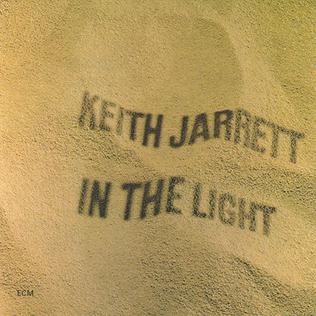
In the Light is a double album of contemporary classical music by Keith Jarrett, recorded in February 1973 and released on ECM April the following year—his fourth for the label.

Invocations/The Moth and the Flame is a double album of improvised solo performances by Keith Jarrett recorded in October 1980 and November 1979 respectively and released on ECM in May 1981.

G.I. Gurdjieff: Sacred Hymns is an album by pianist Keith Jarrett recorded March 1980 and released on ECM September that year, featuring solo piano performances of the sacred hymns of George Gurdjieff and Thomas de Hartmann.

Munich 2016 is a live solo double-album by American pianist and composer Keith Jarrett recorded at thePhilharmonic Hall in Munich on July 16, 2016 and released on ECM in November 2019.

Setting Standards: New York Sessions is a three-CD compilation album by the Keith Jarrett Trio, featuring Jarrett on piano, Gary Peacock on bass, and Jack DeJohnette on drums. It brings together the contents of Standards, Vol. 1 (1983), Changes (1984), and Standards, Vol. 2 (1985), all of which were recorded for ECM Records at the Power Station in New York City during January 11–12, 1983. Setting Standards was released by ECM in 2008 to mark the 25th anniversary of the trio.



















